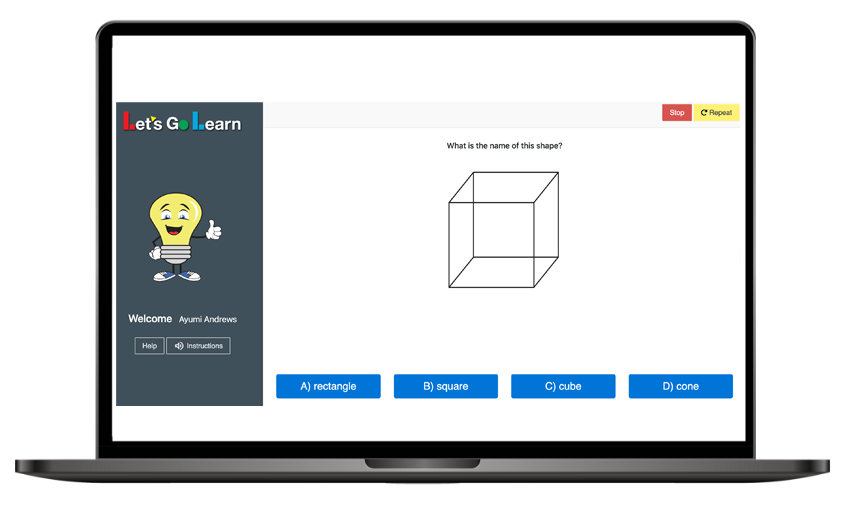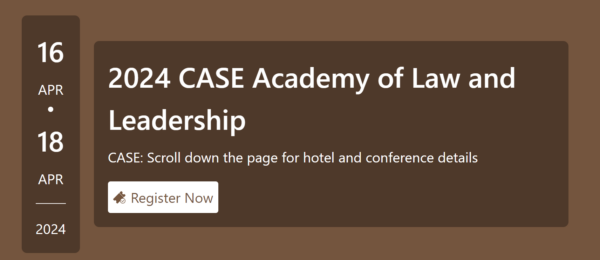Press

Let’s Go Learn to Showcase Innovative Solutions At The First-Ever 2024 CASE Academy of Law and Leadership
Minneapolis, MN, April 16, 2024 – Let’s Go Learn, Inc. (LGL) is proud to announce its participation as both a sponsor and exhibitor at the first-ever 2024 CASE Academy of Law and Leadership conference. This groundbreaking event, scheduled from April 16 to April 18, 2024, will feature key presentations uniting attorneys and special education leaders to explore legal and regulatory guidelines which transform into actionable strategies for local school district practitioners.
The first CASE Academy of Law and Leadership marks a significant milestone in the intersection of legal expertise and educational leadership. Attendees will engage in collaborative discussions and innovative presentations aimed at addressing the complex challenges facing the special education landscape.
As a sponsor, Let’s Go Learn is committed to supporting the mission of the academy by providing educators and administrators with the tools and resources they need to navigate legal complexities and promote student success. With its comprehensive suite of educational technology solutions, Let’s Go Learn empowers educators to personalize learning experiences and meet the diverse needs of every student.
“We are thrilled to be part of the first-ever CASE Academy of Law and Leadership, where attorneys and special education leaders will come together to share insights and strategies for advancing educational equity,” said Richard Capone, CEO, and Co-Founder at Let’s Go Learn. “At Let’s Go Learn, we understand the importance of leveraging technology to support educators in overcoming challenges and driving positive outcomes for students.”
During the academy, attendees will have the opportunity to visit Let’s Go Learn’s exhibition booth to explore its innovative assessment and instructional tools. From adaptive diagnostic assessments to personalized learning pathways, Let’s Go Learn offers solutions that empower educators to make informed instructional decisions and optimize student learning.
For more information about Let’s Go Learn and its participation in the 2024 CASE Academy of Law and Leadership, visit.
About Let’s Go Learn, Inc.
Let’s Go Learn is a personalized learning software company focused primarily on MTSS, special education, and intervention programming to support K-12 students. Over 20 years ago, Let’s Go Learn pioneered online, computer-adapted diagnostic assessments to determine the learning needs of each student. In contrast to limited screening tools, Let’s Go Learn’s platform quickly determines student deficits, needs, and causal relationships to help develop individualized learning paths for each student. Millions of students worldwide have benefitted from Let’s Go Learn’s assessment data, pin-pointed instruction, and robust progress monitoring. The platform is designed to monitor progress from interventions in specific areas, while building detailed reporting and data to support the development and tracking of IEP content and goals.
Media Contact: Richard Capone, 510-455-2098.

Recent blog posts…
Integrated Academics and Behavior
Integrated Academics and Behavior Top 3 Key Takeaways Behavior challenges often signal academic skill gaps, not motivation problems. Early, data-driven assessment allows educators to align instruction and behavior supports effectively. When students experience
Why January Is the Perfect Time to Reassess Students
Why January Is the Perfect Time to Reassess Students Top 3 Key Takeaways The New Year offers a natural reset—academically and emotionally—for students and educators alike. Midyear assessments reveal growth and gaps in
Wrap Up the Semester Successfully with Let’s Go Learn
Wrap Up the Semester Successfully with Let’s Go Learn Top 3 Key Takeaways Identify learning gaps quickly: Let’s Go Learn’s assessments pinpoint exactly where students need help. Build mastery with personalized practice: Adaptive
End the Semester Strong with Let’s Go Learn
End the Semester Strong with Let’s Go Learn Top 3 Key Takeaways A strong end-of-semester plan reduces stress for both teachers and students, making transitions smoother. Let’s Go Learn (LGL) automates essential tasks—diagnostics,






